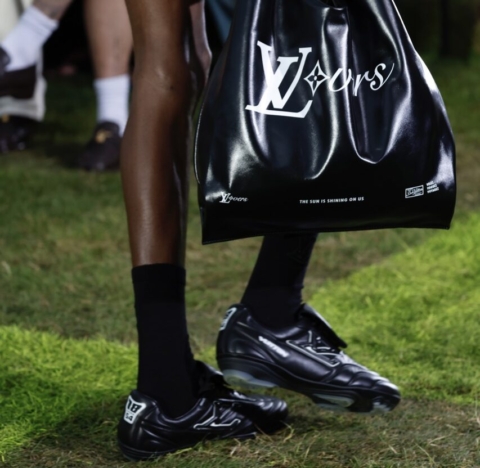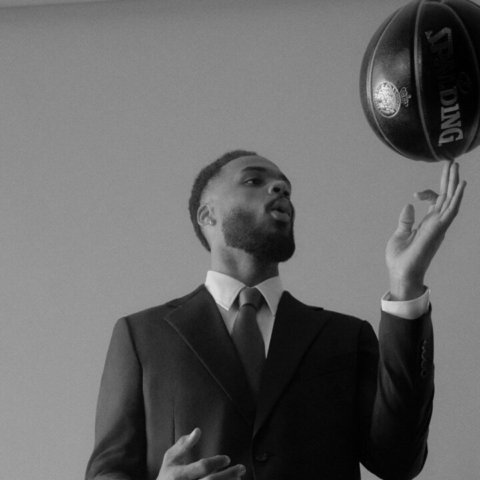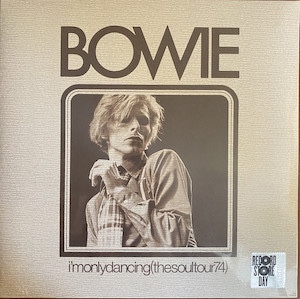Jazzing Up London; A New Generation
By Eliza Winstanley
London jazz. Maybe visions of serious-looking people in black tie attire, or dimly lit corners of smoky bars filled with elitist aficionados spring to mind. Think of the greats: Louis Armstrong, Ella Fitzgerald, Duke Ellington, trailblazers who paved the way for others. From cities like New York, Louisiana and Chicago, the foundations were rooted in the USA; enriched by a tapestry of Afro-American, Islander, and immigrant communities mixing with diverse neighbors catalysed a fusion that birthed an entirely novel musical genre. But among the London youth, a jazz renaissance has been bubbling, rejecting rules and tradition, and pushing the boundaries of what jazz can look, sound, and feel like. Find out more in Jazzing up London; A New Generation
The origins of traditional jazz music can be traced back to the late 19th and early 20th centuries, emerging from the cultural melting pot of New Orleans, Louisiana, United States. Through a fusion of African rhythms, European harmonies, and American innovation, jazz emerged as a revolutionary art form that continues to inspire and captivate audiences worldwide and includes many different world cities being part of the genre.
Over 100 years old, it’s no antique. It still innovates and progresses as a musical force. This new movement (‘nu jazz’, which blends jazz elements with other musical styles) is challenging traditional norms and embracing a more inclusive approach to the genre. Today’s London jazz scene is a testament to the genre’s enduring relevance and its ability to adapt.
“Art is how we decorate space, music is how we decorate time,”
Jean-Michel Basquiat
Young musicians are being drawn back to jazz for its freedom of expression, spontaneity, and limitless possibilities. From the avant-garde productions of Sons of Kemet to the soulful melodies of Nubya Garcia, London’s jazz scene is teeming with talent and creativity. Driven by the remarkable talent and effervescence of emerging musicians, we’re experiencing an exhilarating resurgence of jazz.
Shabaka Hutchings
Visionary saxophonist Shabaka Hutchings is undeniably a big figure in the world of contemporary jazz, redefining the genre through his innovative approaches to music. From leading collectives like Shabaka & The Ancestors and Sons Of Kemet to The Comet Is Coming, Hutchings’ sound is unmistakably his own; bold, explosive and experimental.
His upbringing in Barbados allowed an appreciation for the calypso and soca music of Barbados’ Carnival, informing the kinetic soundscape of Sons of Kemet and Shabaka & The Ancestors. Their aesthetic embraces the diversity of London’s club culture; from jungle and house to hip-hop, dub and beyond, Hutchings uses his platform to amplify marginalised voices and spark meaningful conversations.
Photo: Tore Sætre / Wikimedia
His influences, ranging from sci-fi literature, cosmic philosophy, and psychedelia are explored through glorious jazz fusions that embrace the diversity of London’s club culture and the power of collective creativity.
Ezra Collective
If you’re looking for a taste of the future of British jazz, look no further than Ezra Collective. This dynamic quintet has been taking the London jazz scene by storm with their infectious blend of jazz, hip-hop, and Afrobeat, with further major influences of calypso, reggae, soul and even UK grime.
This composite sound of the group signifies a vibrant ode to the pulsing rhythm of life in multicultural London. The eponymous collective is named after Ezra the prophet; a reference to the biblical figure who guided the Israelites through a period of profound social and spiritual renewal.
Femi Koleoso (lead instrumentalist) comes from a Nigerian background, reflected in the collective’s multicultural, hybrid sound, touched by shades of London grime. Whether they’re jamming in the basement of Dalston’s Café Oto or captivating crowds at Glastonbury, the group has an infectious energy.
Maisha
Transcendent rich cacophonies ring throughout Maisha’s Boiler Room performance. Inspired by the ethereality of modal jazz from the 60’s and 70’s, the group weaves intricate sonic tapestries that transport listeners to a higher plane of consciousness. The group is led by drummer and producer, Jake Long, who believes in the power of freedom and expression in music.
Among the group is saxophonist Nubya Garcia, who has also worked with Ezra Collective and Sons of Kemet. With influences ranging from Pharoah Sanders to Alice Coltrane, Maisha’s music is a spiritual journey that resonates deeply with audiences seeking solace and inspiration in the chaos of the modern world.
Steam Down
In the heart of Deptford, South-East London, is a group fundamental to London’s flourishing jazz revival; Steam Down, a vibrant collective that’s redefining what it means to make music in the 21st century. Characterised by a fearless spirit of experimentation and collaboration, they fuse grime, hip-hop, sound system music and future soul.
Founded by saxophonist Ahnanse, Steam Down brings together musicians, poets, and visual artists from across London’s cultural landscape to create electric, immersive performances that celebrate collaboration and community.
Their legendary jam sessions at the Steam Down club night at Matchstick Piehouse in Deptford have become a hotbed for experimentation and innovation, attracting a diverse audience of music lovers and creatives.
Levitation Orchestra
Radically egalitarian and experimental, this collective has a bright, hip-hop sound with rock and punk flavours. The celestial soundscape of Levitation Orchestra crafts vibrant compositions that push the boundaries of musical exploration through fusions of jazz, classical and global influences. Led by a diverse array of instruments, (brass, woodwinds, percussion, and more) the scope for experimentation is limitless.
An eleven-piece ensemble with influences ranging from Alice Coltrane and Sun Ra to Stravinsky and Ravel, “Many In Body, One In Mind” is a track that perfectly describes the beautiful chaos of this collective. A great many musicians whose sound effortlessly syncs into a symphony.
Cykada
Cykada is a dynamic and innovative six-piece based in London, known for their genre-blurring blend of spiritual jazz-rock, funk, and EDM; blending elements of jazz improvisation with the energy and groove of funk, and the experimental textures of electronic music.
A hypnotic collage of eclectic instrumentals, ‘Metamorphosis’, their second album, celebrates soundsystem culture while marking the ever-changing status of society; and possibly the metamorphosis of jazz itself. Sublime riffs wander into swirling symphonies, which makes for an album inspired by a music scene that is ever-evolving and accepting.
The Telescopes
It is also interesting how this kind of ‘outsider music’, which transcends context or pattern, actually fosters togetherness and community. Although not London-based, The Telescopes have been creating experimental music since 1987, experimenting with noise, space rock, dream pop and psychedelic, and have resurged years later with a refined and confident sound that explores the complexities of modern life. They released the album Third Wave following a ten-year hiatus;
Free improvisation is not an action resulting from freedom; it is
an action directed towards freedom.
Davey Williams (1984, 32)
The album followed the freedom principle; a process revolving around the freedom of artistic expression, reclaiming the liberty to create without constraints. The primality of this album is clear; rejecting formula and repetition. With their distinctive blend of psychedelic rock, noise experimentation, and ethereal melodies, they have carved out a unique niche in the indie music landscape.
We Out Here
‘We Out Here’ is a great place to start. It’s an album that makes up the definitive compilation of high-end Londonian modern jazz. Featuring tracks from Maisha, Ezra Collective, Moses Boyd, Theon Cross, Nubya Garcia, Shabaka Hutchings, Triforce, Joe Armon-Jones, and Kokoroko, this album gives a taster for the diverse palette of contemporary jazz. In this playful and innovative reinvention of jazz, techniques isn’t vital to the process but raw and focused energy certainly is.
Festivals such as Love Supreme, Brick Lane Jazz Festival and EFG London Jazz Festival also celebrate the colourful heterogeneity of modern jazz.
But perhaps the true beauty of the jazz resurgence in London lies not just in the music itself, but in the sense of possibility and hope that it represents; a mantra of togetherness. This is the jazz of the future; jazz we can rave to, cry to, and escape to. An evolving genre in which the musicians carry the torch for those who came before them.
If you enjoyed reading Jazzing Up London; A New Generation of Jazz, why not read Elizabeth Tan; Her Transformative Craft in the World of Acting
Cent Magazine London, Be Inspired; Get Involved






